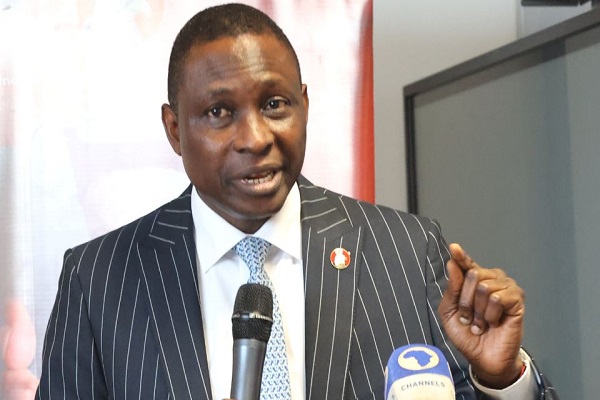News
EFCC Links Visa Restrictions on Nigerians to ‘Yahoo Boys,’ Warns Against ‘Easy Money’
The Economic and Financial Crimes Commission (EFCC) says the visa restrictions and denials faced by many law-abiding Nigerians…

The Economic and Financial Crimes Commission (EFCC) says the visa restrictions and denials faced by many law-abiding Nigerians are linked to the activities of internet fraudsters popularly known as “Yahoo Boys.”
The Economic and Financial Crimes Commission (EFCC) has blamed the visa denials and travel restrictions faced by law-abiding Nigerians on the growing activities of internet fraudsters, widely known as “Yahoo Boys.”
In a post shared on its official 𝕏 account on Tuesday, EFCC Chairman Ola Olukoyede lamented the trend, urging youths in the South-South region to resist the lure of cybercrime and financial fraud. He described fraud as a deadly trap that destroys lives and futures.

Olukoyede gave the charge on Monday, September 15, 2025, in Port Harcourt, Rivers State, at an event organised by the Coalition of Nigerian Youth on Security and Safety Affairs (CONYSSA).
Speaking on the theme, “Uniting South-South Youths in the Fight Against Cultism, Pipeline Vandalism, Internet Fraud, Money Laundering, Drug Abuse, Human Trafficking and Economic Sabotage,” the EFCC boss, represented by Chief Superintendent Coker Oyegunle, Head of the Advance Fee Fraud Section at the Port Harcourt Zonal Directorate, warned against chasing “easy money.”
“Fraud is not success; it is a trap. Easy come, easy go. Many who follow the path of ‘yahoo-yahoo’ always end up losing their freedom, reputation, and future. The law is catching up with them and digital footprints never disappear. Don’t destroy your tomorrow with shortcuts today,” he cautioned.
DON’T MISS: Doctor Abandoned Patient in the Middle of Surgery to Have S3x With Nurse
Olukoyede stressed that cybercrime not only damages Nigeria’s global image but also sabotages the economy, costing the country billions of naira annually while depriving citizens of infrastructure, jobs, and opportunities.

“The EFCC boss highlighted that internet fraud, money laundering, and economic sabotage cost Nigeria billions of naira annually, undermining national growth and depriving citizens of infrastructure, jobs, and opportunities. Beyond the economic damage, he pointed out that the crimes erode Nigeria’s international image and subject innocent Nigerians to stricter visa restrictions abroad,” the statement added.
Encouraging Nigerian youths to channel their energy into creativity and innovation, the EFCC chairman said:

“Youths are the engine of our nation. If you choose fraud, you are choosing to destroy your tomorrow. But if you choose creativity, innovation and honesty, you are building a Nigeria that will compete with the best in the world.”
He reaffirmed the EFCC’s commitment to ramping up sensitisation campaigns, enforcement measures, and community partnerships to tackle cybercrime and its devastating effects on society.























You must be logged in to post a comment Login